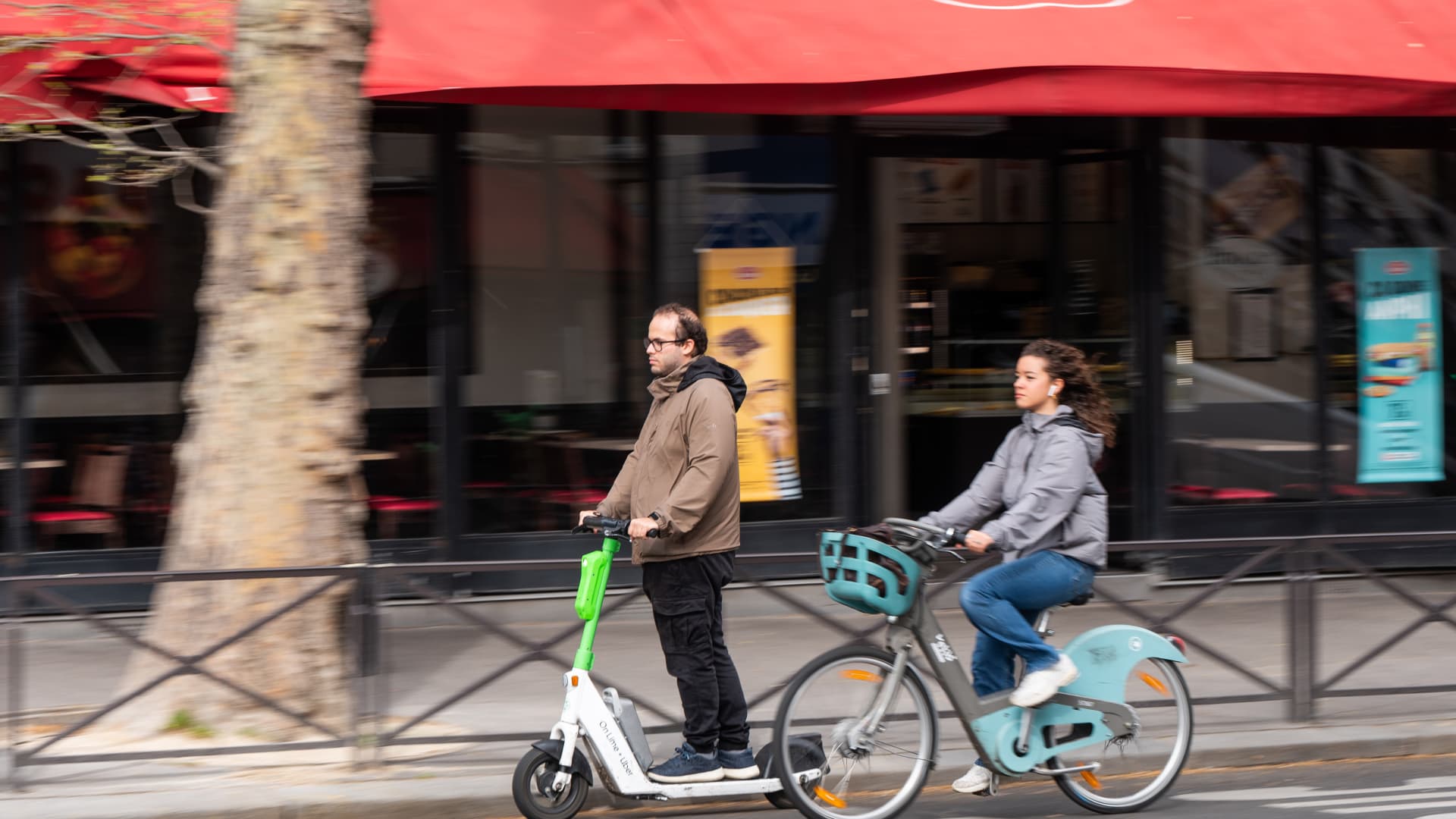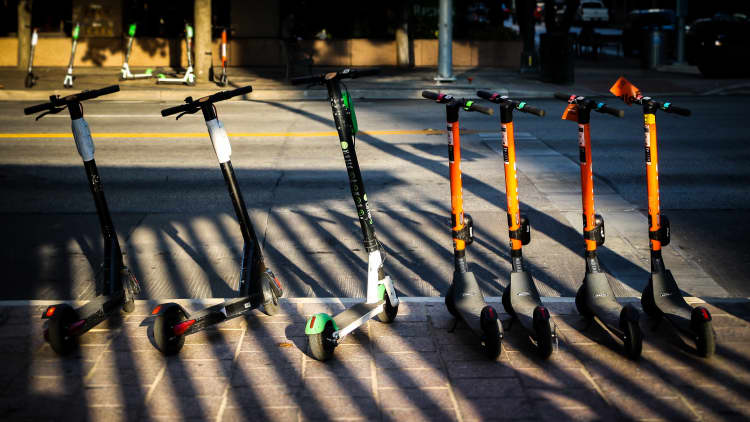
E-scooters and an e-bike are parked in a designated parking space.
Picture Alliance | Picture Alliance | Getty Images
Paris will this week become one of the only cities in Europe with an outright ban on rented e-scooters — as operators plan to ramp up their e-bike fleets to replace them ahead of the 2024 Olympics.
Despite previously expressing hopes for a last-minute reprieve, the three firms with e-scooter operating licenses in the French capital, Lime, Dott and Tier, all confirmed to CNBC that they will have removed their scooters, or trottinettes, by the Sept. 1 deadline.
They had a combined fleet of roughly 15,000 e-scooters in the city.
A referendum held in April gave Parisians two choices regarding the rental scooters: for or against.
Companies pointed out that the turnout represented just 7% of those eligible to vote. They also argued the city would fall out of step with other urban hubs embracing an eco-friendly mode of transport that is popular with tourists in one of the most-visited cities in the world. They point out there will be no change to private e-scooter usage rules.
But the result was emphatic among those who did vote, with 90% against the trottinettes.

It comes as cities around the world debate whether such vehicles, which are unlocked via an app and paid for by the minute, are a dangerous public nuisance or part of the future of urban mobility.
Shared scooters are still present in other French cities, including Marseille and Lyon.
Many cities have introduced restrictions on scooters, such as speed limits and parking zones enforced via fines for users. Some allow them to be ridden on pavements and in bike lanes, others do not. However, outright bans by cities that have previously welcomed them are rare.
In Europe, Madrid this year reversed a prior ban to allow rental firms back with new conditions, as Copenhagen also did in 2021. Most e-scooters are banned on public roads in the bike-loving Netherlands, and no ride-sharing companies have entered the market.
Tourist hotspots New Orleans and Las Vegas both have ride-share e-scooter bans, but they remain in 158 other U.S. cities.
E-bike expansion
Lime, Dott and Tier all said they would now shift their focus to growing their provision of e-bikes in Paris after moving their scooters elsewhere.
“While Lime e-scooters will depart Paris by the end of August for other cities in Europe, Parisian riders are already pivoting to our expanding fleet of e-bikes,” a Lime spokesperson told CNBC.
“We now operate twice the number of e-bikes than we ever did e-scooters, and are encouraged by the city’s continued support for cycling ahead of the 2024 Olympics.”
Lime’s Paris scooter fleet totaled around 5,000, versus around 10,000 bikes. The company said journeys taken on its bikes increased by 73% in the capital last year.
Dott said it was sending its scooters to places where it has signed new tenders, including Bordeaux and across Belgium. A spokesperson said the company was increasing its e-bike fleet, which it hopes to expand into the Paris suburbs ahead of the Olympics, which are due to begin in July next year.
E-bikes are not uncontroversial themselves. Critics say that they clutter pavements and roads when not stored properly; are sometimes used on pavements despite their significant speed abilities; and are also often used by tourists or commuters without helmets.
Valère Rousseau, a Parisian working in the heritage sector, said he thought the public was more accepting of e-bikes as a useful mode of travel.
“E-scooters are different. They are very appreciated by young people but disliked by Parisians because parking is still an issue and it remains dangerous — no helmet, sometimes on the pavement,” he told CNBC.
Reducing car congestion and making the city fully bike-accessible have been some of Paris Mayor Anne Hidalgo’s key priorities.
In 2022, she announced plans to ban most cars from several central areas, with road access only for pedestrians, bicycles, public transport and certain permitted cars.
That follows the pedestrianization of areas including large sections of the banks of the River Seine, while bikes have been given priority and most cars banned along the central commercial Rue de Rivoli.
